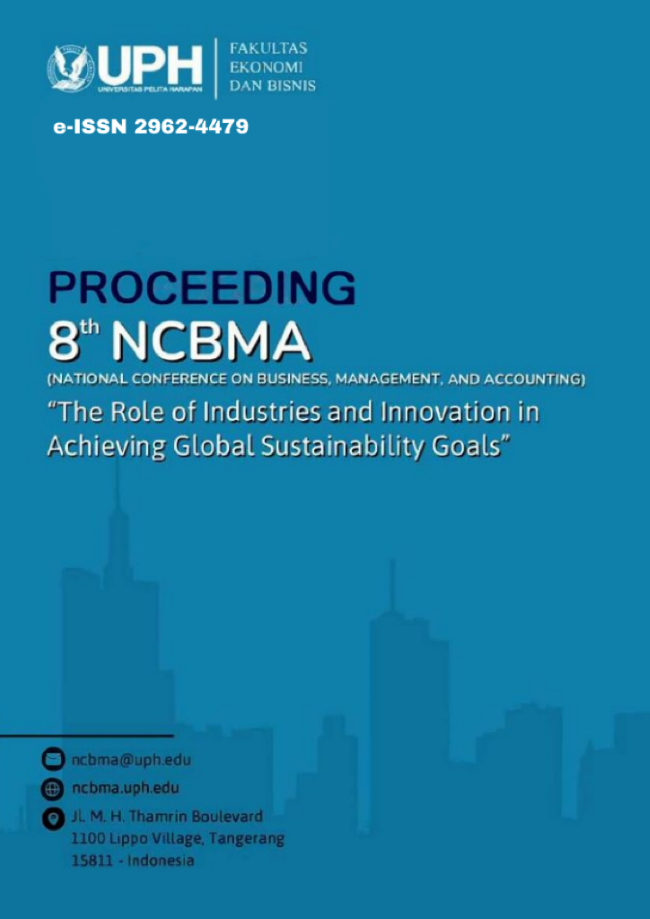KEPEMIMPINAN MILENIAL PADA INSTITUSI PENDIDIKAN ANAK USIA DINI: SEBUAH KAJIAN PUSTAKA
Keywords:
Kepemimpinan Milenial, PAUD, Kepemimpinan Intergenerasi, Kepemimpinan Transformasional, Kemahiran digitalAbstract
Kehadiran para milenial sebagai pemimpin dalam organisasi institusi pendidikan anak usia dini (PAUD), memberikan keunikan tersendiri di mana terlihat kemampuan digital yang tinggi, kolaborasi serta kerja yang berorientasi pada tujuan. Metode penelitian dilakukan dengan menerapkan pendekatan kajian pustaka (2015-2024) untuk menganalisis dampak kepemimpinan milenial pada institusi PAUD. Temuan yang didapati adalah beberapa tantangan dan peluang yang dihadapi oleh pemimpin milenial, tantangannya berupa keterbatasan kemampuan kepemimpinan, tuntutan tinggi akan aspek emosional dan konflik intergenerasi. Namun, terdapat juga peluang yang positif yakni: integrasi teknologi dan inovasi, kepemimpinan yang transformasional dan inklusif serta penekanan terhadap work-life balance.
References
Ardi, A., & Meilani, Y. F. C. P. (2024). Leadership Behavioral Development of Millennial Leaders as A Change Agent In the Digital Transformation Organization. Feedforward: Journal of Human Resource, 4(2), 85-95.https://doi.org/10.19166/ff.v4i2.8668.
Deloitte. (2020). The Deloitte Global Millennial Survey 2020: Resilient Generations Hold the Key to Building a "Better Normal". Tanggal akses 15 Maret 2025.
Douglass, A. (2019). Leadership for Quality Early Childhood Education and Care.
International Journal of Child Care and Education Policy, 13(1), 6.
Easton, C., & Steyn, R. (2023). Millennial Leaders and Leadership Styles Displayed in the Workplace. South African Journal of Business Management, 54(1), a3139. https://doi.org/10.4102/sajbm.v54i1.3139
Folarin, K. (2021). Cultivating Millennial Leaders. American Journal of Leadership and Governance, 6(1), 1-7. https://doi.org/10.47672/ajlg.727
Jeon, L., Buettner, C. K., & Grant, A. A. (2018). Early Childhood Teachers’ Psychological Well-being: Exploring Potential Predictors of Depression, Stress, and Emotional Exhaustion. Early Education and Development, 29(1), 53-69. DOI:10.1080/10409289.2017.1341806
Heikka, J., Halttunen, L., & Waniganayake, M. (2018). Perceptions of Early Childhood Education Professionals on Teacher Leadership in Finland. Early Child Development and Care, 188(2), 143-156. DOI:10.1080/03004430.2016.1207066
Hermanu, D. H., Hermanto, B. C. ., & Ashelawati, B. D. . (2024). Kepemimpinan Milenial dalam Memimpin Karyawan Lebih Tua melalui Komunikasi Organisasi. JIIP - Jurnal Ilmiah Ilmu Pendidikan, 7(1), 988-997. https://doi.org/10.54371/jiip.v7i1.3217
Lacdo-O, F., Macawile, M. V. P., & Caliwan, M. A. (2018). The Need to Transcend: A Phenomenological Study on the Lived Experiences of Millennial Teachers. International Journal of Scientific Research in Education, 11(3), 318-334.
Lyons, S. T., & Schweitzer, L. (2017). Generational Career Shift: Millennials’ Career Preferences and Leadership Aspirations. Career Development International, 22(2), 150-166.
Musa, S., Nurhayati, S., Jabar, R., Sulaimawan, D., & Fauziddin, M. (2022). Upaya dan Tantangan Kepala Sekolah PAUD dalam Mengembangkan Lembaga dan Memotivasi Guru untuk Mengikuti Program Sekolah Penggerak. Jurnal Obsesi: Jurnal Pendidikan Anak Usia Dini, 6(5), 4239-4254. DOI: 10.31004/obsesi.v6i5.2624
Najarro, I. (2024, March 06). The Lily Gladstone Effect: A Teacher Explains the Value of Indigenous Language Immersion. Education Week. https://www.edweek.org/leadership/the-lily-gladstone-effect-a-teacher-explains- the-value-of-indigenous-language-immersion/2024/03. Tanggal Akses 20 Maret 2025.
Ng, E. S., & Feldman, D. C. (2015). The School-to-Work Transition: Emerging Trends and Future Research. Research in Personnel and Human Resources Management, 33, 1-27.
Ng, E. S., Lyons, S. T., & Schweitzer, L. (2018). Millennials in Canada: Young workers in a Changing World. Canadian Journal of Administrative Sciences, 35(1), 1-6. DOI:10.1057/978-1-137-46781-2_13
OECD. (2021). Education at a Glance 2021: OECD Indicators. OECD Publishing. https://doi.org/10.1787/b35a14e5-en.
Omilion-Hodges, L. M., & Sugg, C. E. (2019). Millennials’ Views and Expectations Regarding the Communicative and Relational Behaviors of Leaders: Exploring Young Adults’ Talk about Work. Business and Professional Communication Quarterly, 82(1), 74-100. https://doi.org/10.1177/2329490618808043
Onorato, M., Walsh, L., & Lei, Y. (2018). Millennials: Effective Leaders of the Future.
Academy of Business Research Journal, 2, 22-35.
Pew Research Center. (2019). Defining generations: Where Millennials End and Generation Z Begins. Tanggal Akses 14 Maret 2025.
Rahayu, N. I. A. (2020). Kepemimpinan Kepala PAUD Di Era Revolusi Industri 4.0.. Pustaka Senja, 1-149.
Saldivar, J. M. N. (2024). Mission-Driven Leadership: AN Emergent Theory. Ignatian International Journal for Multidisciplinary Research, 2(9), 328-342. https://doi.org/10.5281/zenodo.13733732.
Slade, S., & Gallagher, A. (2021, October 28). Transformational vs. Instructional Leadership. Which Is Better?Education Week. https://www.edweek.org/leadership/opinion-transformational-vs-instructional- leadership-which-is-better/2021/10. Tanggal Akses 20 Maret 2025.
Takrim, M., Yanti, E. R., & Yuliati, D. (2021). Kepemimpinan Milenial Dalam Memperkuat Budaya Organisasi. Jurnal Administrasi Kantor, 9(2), 251-262. https://doi.org/10.51211/jak.v9i2.1604.
Trauernicht, M., Anders, Y., Oppermann, E., & Klusmann, U. (2023). Early Childhood Educators’ Emotional Exhaustion and the Frequency of Educational Activities in Preschool. European Early Childhood Education Research Journal, 31(6), 1016- 1032. https://doi.org/10.1080/1350293X.2023.2217485
Twenge, J. M. (2017). iGen: Why Today's Super-connected Kids are Growing Up Less Rebellious, More Tolerant, Less Happy–and Completely Unprepared for Adulthood. Atria Books.
Wiedmer, T. (2015). Generations do Differ: Best Practices in Leading Traditionalists, Boomers, and Millennials. Delta Kappa Gamma Bulletin, 82(1), 51-58.
Zhu, M., Berri, S., Koda, R., & Wu, Y.-J. (2024). Exploring students’ self-directed learning strategies and satisfaction in online learning. Education and Information Technologies, 29, 2787–2803. https://doi.org/10.1007/s10639-023-11914-2
Downloads
Published
Issue
Section
License

This work is licensed under a Creative Commons Attribution-ShareAlike 4.0 International License.

